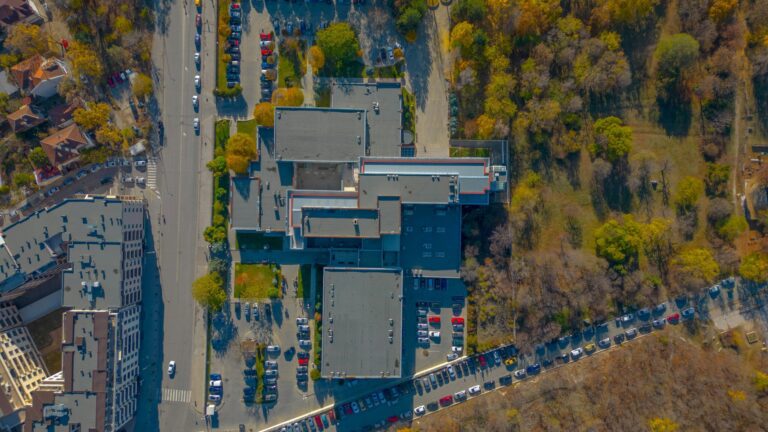Atlanta is currently experiencing a rapid surge in data center construction, driven by the growing global demand for artificial intelligence (AI) and digital infrastructure. Between early 2023 and mid-2024, the city’s data center capacity grew by an impressive 76%. Looking ahead, projections suggest that the city’s data center capacity could increase 30-fold by 2028 compared to 2012 levels. While this expansion is a sign of Atlanta’s growing importance as a tech hub, it is also raising concerns among residents, urban planners, and lawmakers. Critics argue that the increasing number of data centers is displacing more essential urban developments, such as housing and retail spaces, and could lead to unintended consequences for the city’s urban fabric.
The Rapid Growth of Atlanta’s Data Center Industry
Atlanta’s data center industry has been booming due to the surge in demand for cloud computing, AI, and digital infrastructure. With major tech companies and service providers investing heavily in the region, the city’s data centers are becoming critical components of the digital economy. These facilities are not only hosting vast amounts of data but also enabling the AI-driven revolution across various industries, from healthcare and finance to entertainment and transportation.
Between 2023 and 2024, the city’s data center capacity grew by 76%, reflecting the increased need for data storage and processing power. With projections estimating a 30-fold increase by 2028 compared to 2012, Atlanta is poised to become one of the most critical tech hubs in the country. The city’s favorable business environment, coupled with its access to abundant energy resources and connectivity, makes it an attractive location for data center operators.
Urban Development Concerns: Displacement of Essential Developments
Despite the economic benefits, the rapid expansion of data centers is not without controversy. Residents and city planners are raising concerns about the impact of these facilities on the broader urban landscape. One of the most significant worries is that data centers are occupying large tracts of land that could otherwise be used for more essential urban developments, such as affordable housing, retail spaces, or public amenities.
Atlanta, like many growing cities, is grappling with a housing crisis, and critics argue that the space consumed by data centers could be better utilized to meet the city’s pressing housing needs. In addition to residential concerns, there are fears that data centers could push out retail spaces, further limiting the availability of shops, restaurants, and other consumer services that contribute to the vibrancy of urban neighborhoods.
Additionally, data centers often require substantial energy consumption, which can strain local infrastructure and contribute to environmental concerns. Some urban planners worry that the rapid proliferation of these facilities could hinder the development of more sustainable and mixed-use spaces that better serve the community.
The Impact on Real Estate Professionals
The rise of data centers in Atlanta is reshaping urban planning and real estate development strategies. For real estate professionals, this trend presents both opportunities and challenges. Data centers are typically built in industrial zones or areas with limited commercial or residential development. As demand for digital infrastructure increases, these zones are likely to see a rise in value, creating opportunities for investors and developers to engage in land acquisition and development projects that align with the growing tech infrastructure needs.
However, real estate professionals must also be mindful of the potential conflicts that may arise between tech infrastructure and other forms of urban development. Data centers’ impact on local zoning regulations, land availability, and infrastructure will require a deeper understanding of urban planning dynamics. Professionals need to stay informed about changes in local zoning laws and development priorities to help clients navigate this evolving landscape.
Moreover, real estate professionals should also consider the long-term implications of the increasing concentration of data centers in urban areas. While they may offer immediate benefits in terms of increased economic activity and job creation, they could also create challenges in the form of environmental impacts, traffic congestion, and changes in the overall character of neighborhoods. Balancing the needs of tech infrastructure with the preservation of diverse urban spaces will be essential for sustainable development.
Navigating the Urban Tech Boom
As the demand for digital infrastructure continues to rise, the relationship between data centers and urban development will remain a key topic for policymakers, residents, and real estate professionals. The challenge will be to strike a balance between fostering technological advancement and ensuring that essential urban amenities are not sidelined.
For real estate professionals, this means staying ahead of trends in zoning, land use, and urban planning. Those who can anticipate the needs of both the tech industry and urban communities will be well-positioned to capitalize on emerging opportunities. This includes finding ways to incorporate data centers into broader development strategies that also prioritize housing, retail, and green spaces.
Conclusion
Atlanta’s data center expansion reflects the city’s growing prominence in the digital economy but also highlights the challenges of balancing technological growth with the preservation of vital urban spaces. The rapid increase in data center construction raises important questions about land use, zoning, and the future of urban development. Real estate professionals must remain adaptable and stay informed about these shifts to navigate a changing landscape and take advantage of emerging opportunities while addressing the needs of the community.
Sources:
